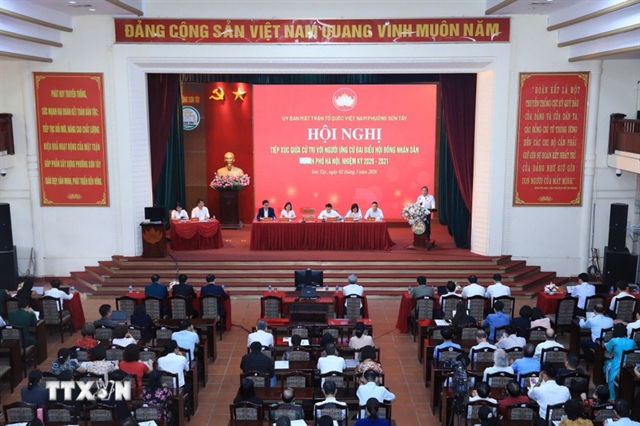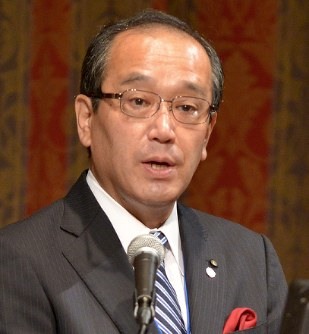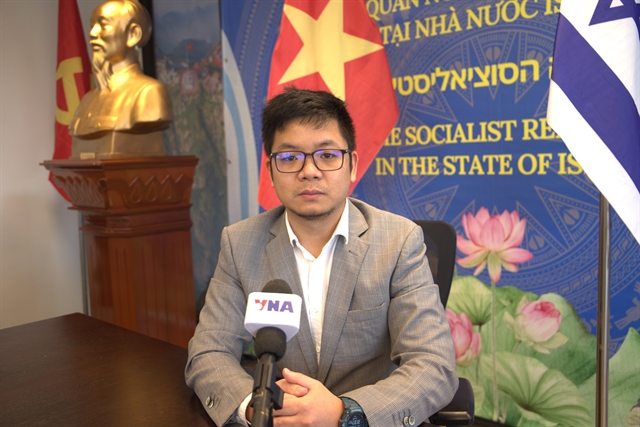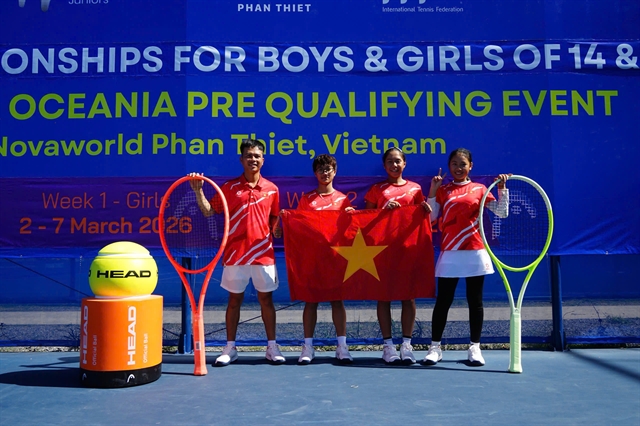 World
World

U.N. negotiations toward the first global treaty banning atomic weapons resumed Thursday despite a boycott by nuclear powers including the United States, as well as countries it is sworn to protect with its arsenal.
 |
| Mayor of Hiroshima Kazumi Matui.— Photo Xinhua |
NEW YORK — U.N. negotiations toward the first global treaty banning atomic weapons resumed Thursday despite a boycott by nuclear powers including the United States, as well as countries it is sworn to protect with its arsenal.
Participants voiced hope that agreement will be reached on a final text of a pact by the end of the session on July 7, based on a draft released last month by the president of the talks, Elayne Whyte Gomez, Costa Rican ambassador to the United Nations Office and other international organizations in Geneva.
Kazumi Matsui, mayor of Hiroshima, the world’s first city to be attacked with a nuclear weapon, said during the session that "the earnest wish" of atomic bomb survivors, known as hibakusha, "is to witness the prohibition of nuclear weapons in their lifetime."
In her remarks, Izumi Nakamitsu, U.N. high representative for disarmament affairs and undersecretary general, said the United Nations supports the talks, now in their second round, following the fist in March.
"These talks are truly historic as they represent the most significant negotiations in the area of nuclear disarmament," she said, adding that "the heroic and tireless efforts by hibakusha guide the international community to move toward a world free of nuclear weapons."
The first draft expresses deep concern about "the catastrophic humanitarian consequences that would result from any use of nuclear weapons" and forbids states from producing, possessing or using them.
The preamble of the text said the countries participating in the talks are "mindful of the suffering of the victims of the use of nuclear weapons (Hibakusha) as well as of those affected by the testing of nuclear weapons."
As part of Thursday’s session, discussions were centered on going through the preamble, paragraph by paragraph, although the aim of finishing all 14 paragraphs was not met and will continue Friday.
"We should go beyond just being mindful of the suffering, I think we should be mindful of the unacceptable harm suffered by the victims," Brazil’s Deputy Ambassador in Geneva Guilherme de Aguiar Patriota suggested when discussing a paragraph that mentions the suffering by the victims of nuclear bombs or tests.
Meanwhile, Austria’s Ambassador Thomas Hajnoczi from Geneva stressed how the importance of the hibakusha is being mentioned in the draft and thought it would remain unchanged in the text.
"I think everybody should be happy that it is mentioned because they are the victims of nuclear weapons," he told Kyodo News.
Just as in the previous round, the major nuclear-armed states -- Britain, China, France, Russia and the United States -- are not taking part in the latest session, nor are Japan, Germany or South Korea, which rely on U.S. nuclear deterrence for protection.
The Netherlands, which is a member country of the North Atlantic Treaty Organization, is the sole representative attending the conference.
"A world without nuclear weapons remains our undisputed goal and we hope that these proceedings will constitute a meaningful step towards this goal," said U.N. Ambassador Karel van Oosterom.
However, he laid out a five-point criteria for joining the convention, which includes gaining "broad support" within the United Nations, including from "nuclear possessor states," so it remains to be seen what objections or amendments they may wind up bringing forward in the process.
Despite the U.S. and other nations’ objections, the odds are high that the draft treaty will be adopted without major revisions in July as there was broad consensus among the participants in the March session about the goal of nailing down a deal soon.
The treaty, formally called the Convention on the Prohibition of Nuclear Weapons, would go into force 90 days after the document has been ratified by 40 countries.
Proponents say such a treaty will create moral suasion -- in the vein of the cluster and landmine conventions -- to establish an international norm against nuclear arms.
The United States and other nuclear powers have called the complete ban unrealistic, especially at a time when North Korea has been aggressively pursuing a nuclear-tipped intercontinental ballistic missile that could strike the U.S. mainland.
Kimiyo Kasai, president of the New Japan Women’s Association, a Tokyo-based civic group, said before the session that Japan needs to support a ban treaty.
"We particularly urge the government of Japan as the only nation that suffered the atomic bombing to play an active role by supporting, signing and drafting the convention," she said.—KYODO




